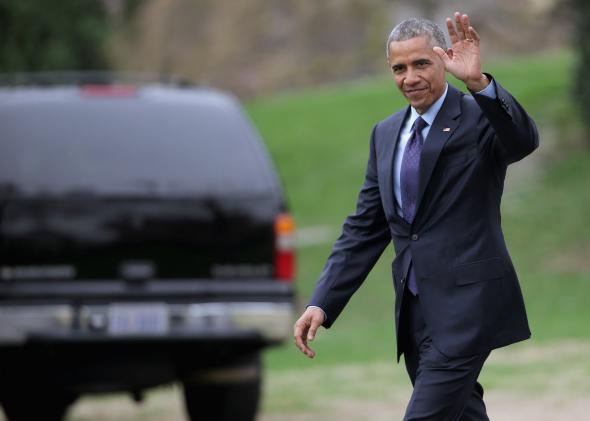On Wednesday evening, President Barack Obama announced via a Whitehouse.gov petition response that his administration supports the banning of so-called “conversion” or “reparative” treatments for lesbian, gay, bisexual, and transgender people, sometimes lumped under the term “ex-gay therapy.” The petition had originally been organized in response to the suicide last December of Leelah Alcorn, a transgender teen who threw herself in front of a truck after having been subjected to such treatment by her parents, who rejected her gender identity. In a suicide note that quickly became an international rallying cry, Alcorn demanded that her death “be counted in the number of transgender people who commit suicide this year. I want someone to look at that number and say ‘that’s fucked up’ and fix it. Fix society. Please.”
The president seems to have heeded Alcorn’s call. After noting that mainstream medical and psychiatric authorities reject conversion therapy on the grounds that it is ineffective and dangerous—especially to young people struggling to come to terms with their sexuality or gender identity in hostile environments—senior adviser Valerie Jarrett, the author of the statement, concluded, “As part of our dedication to protecting America’s youth, this Administration supports efforts to ban the use of conversion therapy for minors.” The announcement was the capstone to a banner day for LGBTQ issues in the White House, with Obama’s previously announced executive order barring discrimination among federal contractors going into effect and news that a gender-neutral bathroom is now available to office staff and visitors, who were already empowered to use the traditionally gendered bathroom appropriate to their identity.
While Obama’s support for ending conversion therapy is definitely good news—especially coming as it did on the same day as the Republican-controlled Colorado Senate rejected a proposed ban in that state—some critics are already pointing out that it’s something of a toothless gesture. As the New York Times reported on Wednesday, the administration will not pursue legislation on the federal level, instead throwing its weight behind banning efforts at the state level. So for the moment, the opposition is largely symbolic.
But that doesn’t mean it’s not important. For one thing, the power of hearing the president of the United States say that the thing you are considering doing is wrong should not be underestimated—although there’s probably considerable overlap between the sort of people who would consider subjecting their child to conversion therapy and those who question Obama’s authority. Also, the more people in positions of power support the dignity and, really, existence of transgender people (the latter being a serious battle in much of the country), the better.
However, the real impact of this statement, I think, is the signal it sends about where we are going next in the LGBTQ equality movement. In a recent talk in New York, Michelangelo Signorile, a gay writer and activist whose new book It’s Not Over looks to the future of queer activism, spoke about the way our victories up until now—the striking down of sodomy laws, marriage equality, hate crimes legislation—have largely been about respecting the autonomy and dignity of consenting adults, a mental feat that he described as relatively “easy” for most Americans. But the coming battles will be harder, mainly because they involve not just what sexual and gender minorities do by themselves, but also how straight and cisgender people interact with them in their regular lives. In that regard, the current squabbles over “religious liberty” and public accommodations are a prime example: It’s easy not to think about two men having sex in the privacy of their home, but when they walk into your diner or bakery holding hands, a different sort of engagement is being tested.
Even touchier in American culture is the supposedly inviolable relationship between parent and child. There’s a sense in this country that one should be left alone to raise one’s offspring as one pleases—but what happens when a parent’s ideologically driven desires could prove dangerous, even fatal, when forced upon their kid?
Activists like Dan Savage have begun calling for the classification of this sort of parenting “choice” as child abuse—a conceptual shift that feels simultaneously radical and correct. Obama’s support of banning conversion therapy, as well as state-level legislation attempting to accomplish that goal, represents a more limited version of the impulse, but the message is the same: It may get better for some LGBTQ folks as they grow up, but true justice is going to require us making it better now for queer youth. And that means going into families and homes and insisting that Mom and Dad are not always right—a messy and fractious proposition to be sure, but one that would be immoral to ignore.
